Tour de France: Froome firmly in control on the Galibier
'If I went into the final time trial with this margin, I'd be confident'
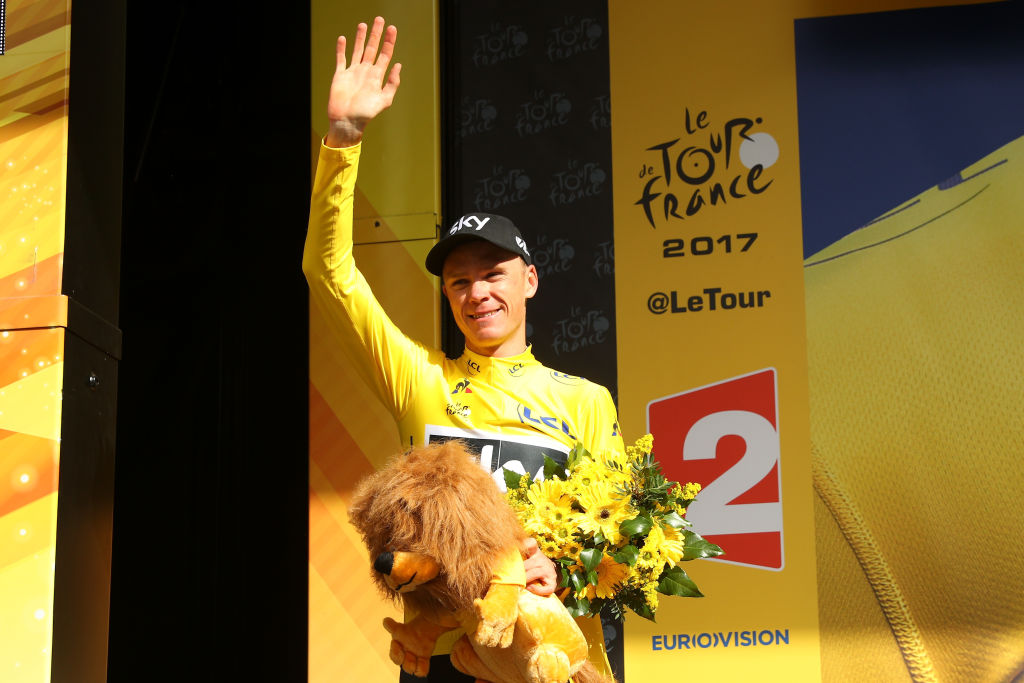
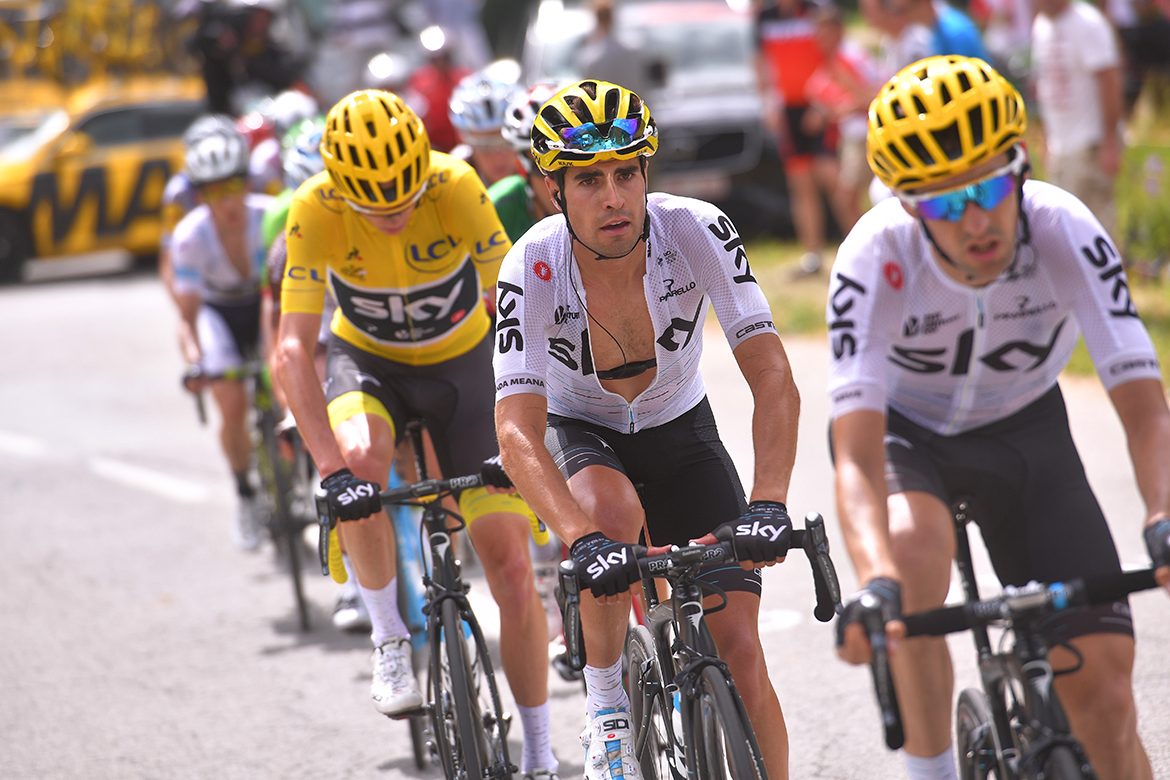
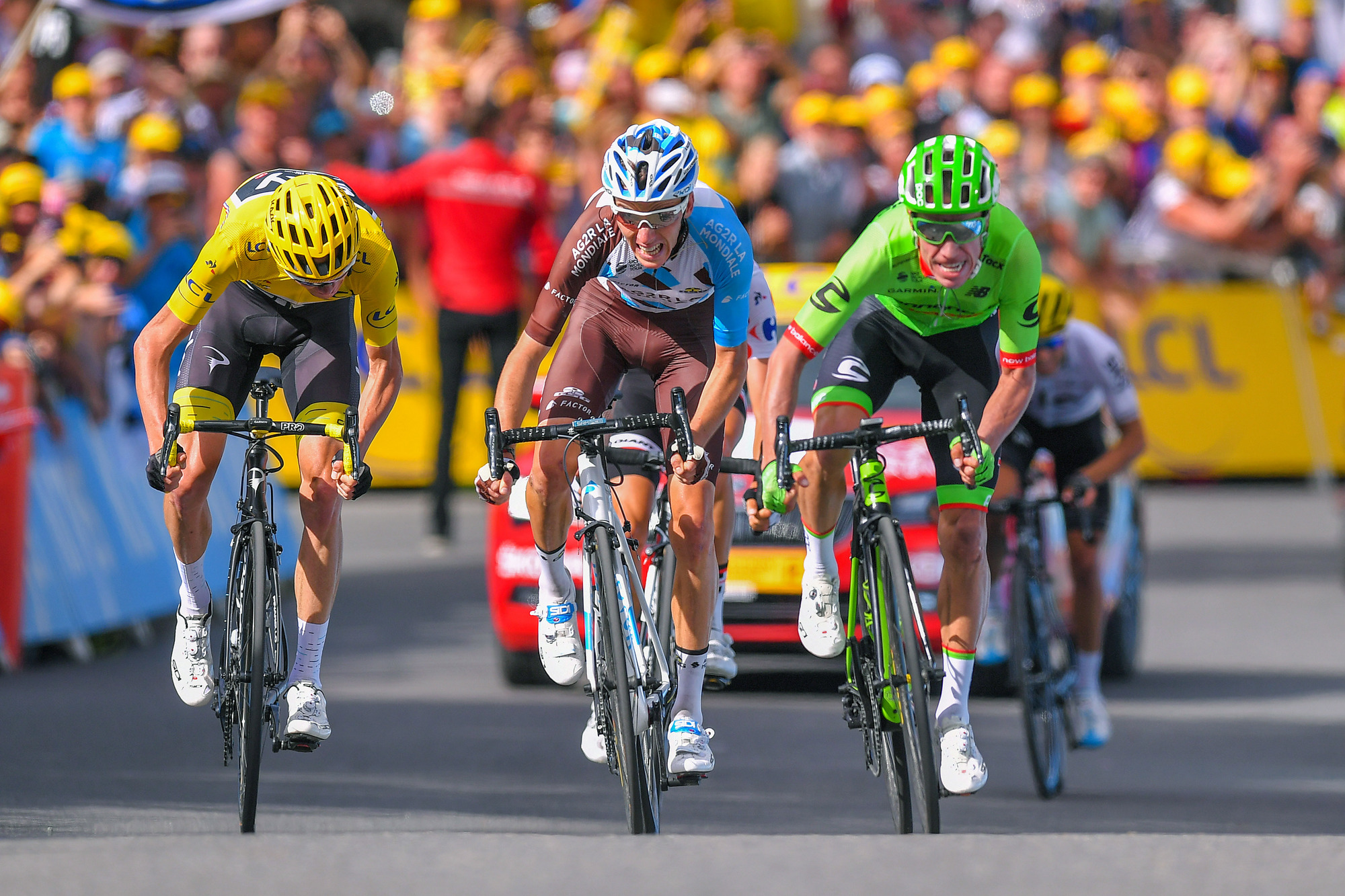
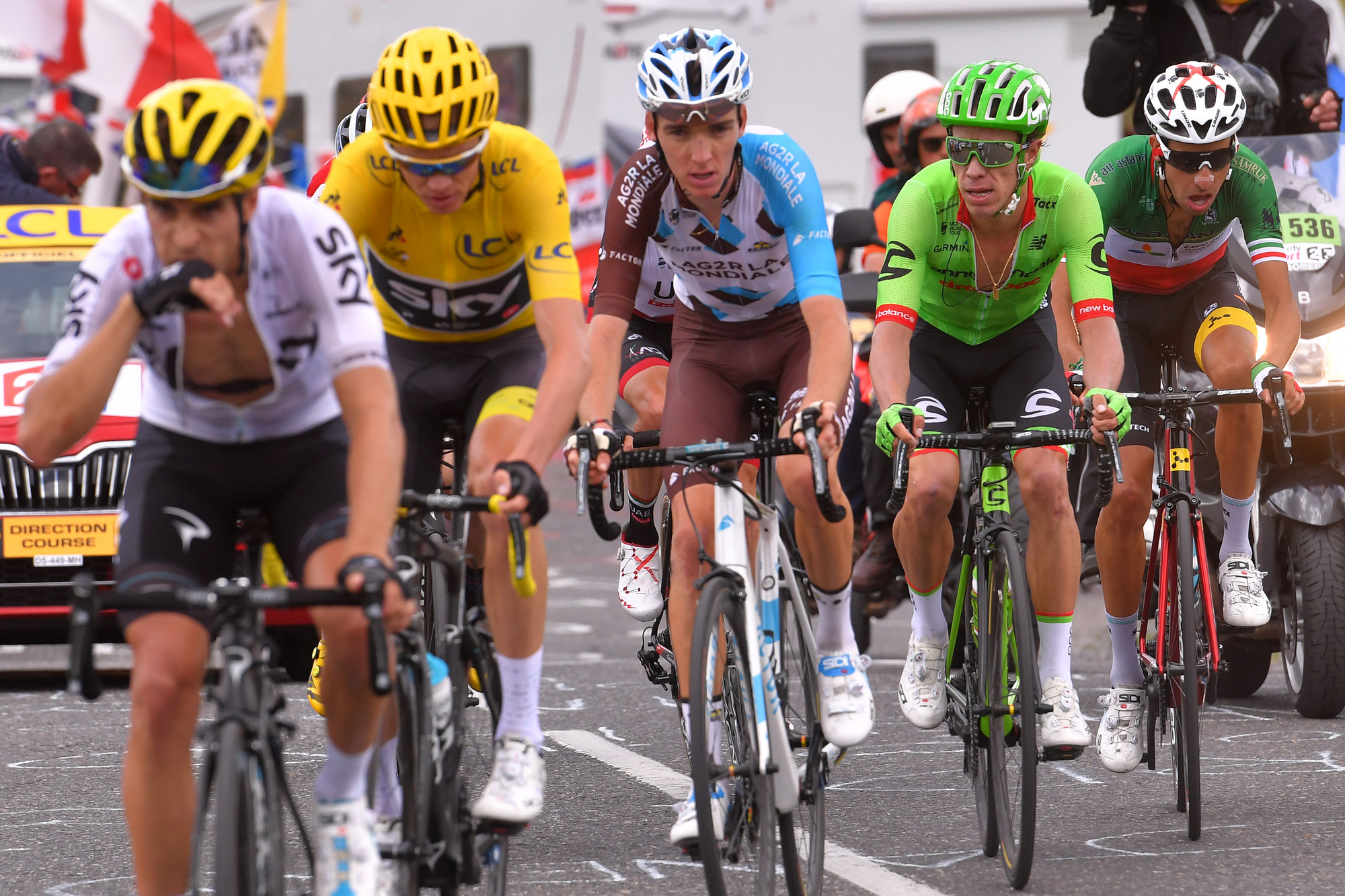
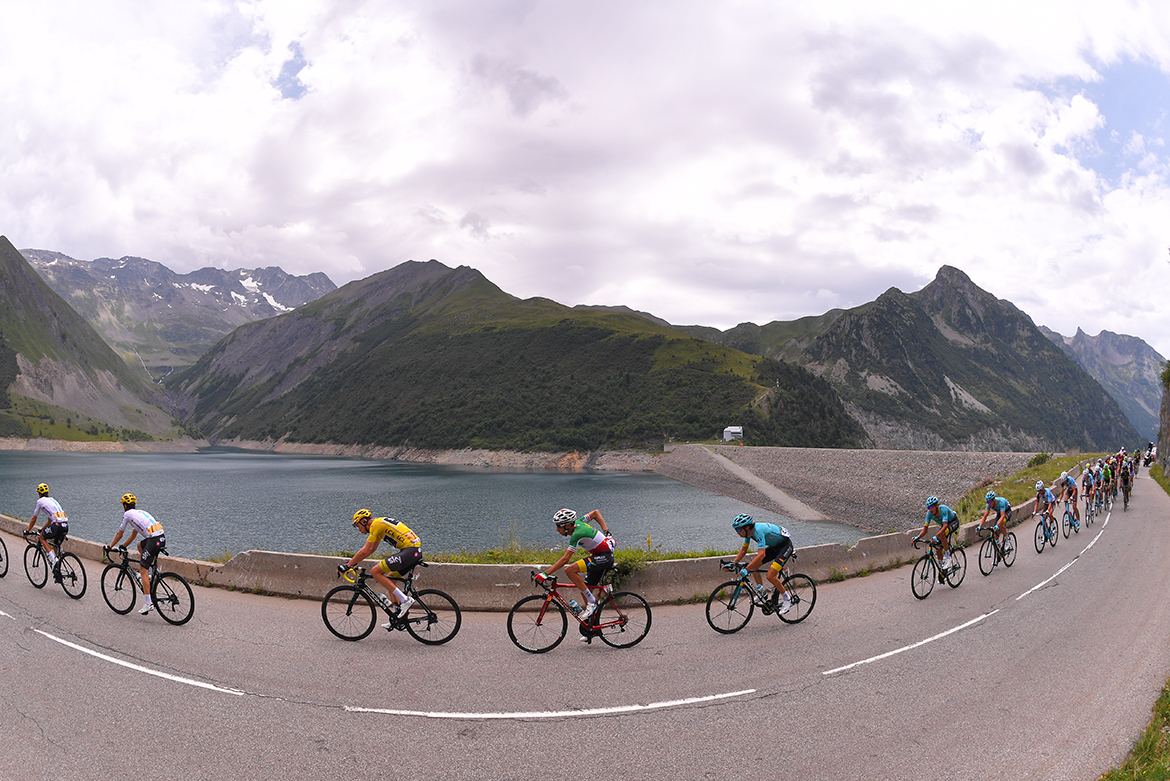
Few combinations in cycling dole out hardship quite like the twin climbs of the Col du Télégraphe and the Col du Galibier, but Chris Froome and his Sky team seemed to make light work of those Alpine giants on stage 17 of the Tour de France.
Froome: I thought my fight for yellow was over
Tour de France: Froome looks to Alps after surviving 'crazy' crosswind stage
Tour de France: GC battle ready to reignite in Alpine double-header - Preview
Tour de France: Roglic soars to victory in Serre Chevalier
Tour de France: Stage 17 finish line quotes
Tour de France: Stage 17 highlights - Video
Tour de France: Bardet remains faithful to attacking philosophy on Galibier
The results sheet at the finish said that this remains one of the tightest Tours in history, but the maillot jaune will feel more secure in his position after repelling the offensive of Romain Bardet (AG2R La Mondiale) and distancing Fabio Aru (Astana) as the race reached its highest point.
Last week in the Pyrenees, Sky's startling display of collective strength on the road to Peyragudes was not matched by Froome, who temporarily lost his yellow jersey on the steep final ramps. That lapse justly nourished the hopes of Bardet, Aru and Rigoberto Urán (Cannondale-Drapac), but Froome's command atop the mighty Galibier might have stifled much of their optimism.
Bardet accelerated three times on the upper reaches of the Galibier, and on each occasion, Froome moved swiftly onto his rear wheel. Aru battled his way up to his rivals twice, before finally relenting and conceding 31 seconds. Urán, meanwhile, rode sagely to follow the moves but did not dare to launch an attack of his own.
"I felt quite in control today, and I certainly felt a lot better than in the Pyrenees, and that's a good sign," said Froome, who came home in a five-man group with Bardet, Urán, Sunweb's Warren Barguil and Sky teammate Mikel Landa, 1:13 behind early escapee Primoz Roglic (LottoNL-Jumbo).
By pipping Bardet to take third on the stage, Froome picked up a four-second time bonus on the Frenchman. In the general classification, he is now 27 seconds ahead of Urán and Bardet, while Aru drops to fourth, 53 seconds back.
"I was surprised by Fabio Aru getting dropped today, I expected him to go on the attack but it's always the third week of a Grand Tour that really tests everyone," Froome said. "There's certainly no hiding in the third week of a Grand Tour. I'm just grateful for the way my teammates rode today, they were fantastic today under a lot of pressure. The team was brilliant."
Get The Leadout Newsletter
The latest race content, interviews, features, reviews and expert buying guides, direct to your inbox!
The pressure was applied primarily on the interminable Col de la Croix de Fer, where Alberto Contador bridged across to the breakaway, but come the two-part ascent of the Télégraphe and Galibier, Sky's white jerseys were massed in their familiar position at the head of a reduced maillot jaune group.
On the Télégraphe, a seated Michal Kwiatkowski – ostensibly a man for the Classics – set a fierce tempo that often forced most of the group to climb en danseuse, and eventually proved too much for men like Nairo Quintana (Movistar). It was, even by Sky's standards of the past number of years, a remarkable exhibition.
To subscribe to the Cyclingnews podcast, click here.
Landa and the Izoard
Once Kwiatkowski swung over five kilometres from the top of the Galibier, Landa took up the reins and continued to set the pace when Dan Martin (Quick-Step) sparked the attacking. Froome took it upon himself to respond when Bardet unsheathed his first effort and continued in that vein when Martin tried again, even though the Irishman began the day more than two minutes down.
"I just felt in control at that point on the Galibier when it got very selective," Froome said. "I didn't want to get into the situation I've seen in the last week, where one of the guys who was there or thereabouts on GC attacks and nobody wants to chase, and suddenly this gap turns into one minute or one and a half minutes. I didn't want that to happen. The legs were good, so I just thought why not keep everyone in check?"
The man who re-entered the podium fight in precisely those circumstances last week was, of course, Froome's own teammate Landa. Just like at the 2015 Giro d'Italia, where he often appeared stronger than his then-leader Aru, Landa has given the impression of climbing more smoothly than the maillot jaune on this Tour. He remains in the hunt for a podium berth and lies 5th overall, 1:24 behind Froome.
"That would be absolutely incredible for Mikel Landa to finish on the podium again. I think he's feeling good. He showed today how strong he was, he was able to do a lot of work in the final on the Galibier, and still arrive in the final with Rigoberto Uran and Romain Bardet. Let's see," Froome said. "Tomorrow's going to be all about the legs, just who's got the legs after a really tough stage today."
With a 23-kilometre time trial to come in Marseille on Saturday afternoon, Froome's hypothetical advantage is rather more than the 27 seconds he currently holds over Urán and Bardet, and he admitted that he would have no qualms about rolling down the start ramp in the Stade Vélodrome with that same buffer.
"It's not a massive margin when I compare it with other years but I'm happy with it. If I went into the final time trial with this margin, I'd be confident," Froome said. "If the gaps remain like this, then Rigoberto would be the biggest rival of those guys."
Before Marseille, however, Froome faces the Col d'Izoard on Thursday afternoon. The haul through the Casse Desert is just the third summit finish of this Tour. It is both a final chance for Bardet and Uran to stake their claim or an opportunity for Froome to end the discussion early.
"It is the equivalent of the Mont Ventoux on this year's Tour de France," Froome said, later adding: "It depends on where everyone's at and who has the legs tomorrow. If I have an opportunity, I'll go for it."

Barry Ryan was Head of Features at Cyclingnews. He has covered professional cycling since 2010, reporting from the Tour de France, Giro d’Italia and events from Argentina to Japan. His writing has appeared in The Independent, Procycling and Cycling Plus. He is the author of The Ascent: Sean Kelly, Stephen Roche and the Rise of Irish Cycling’s Golden Generation, published by Gill Books.